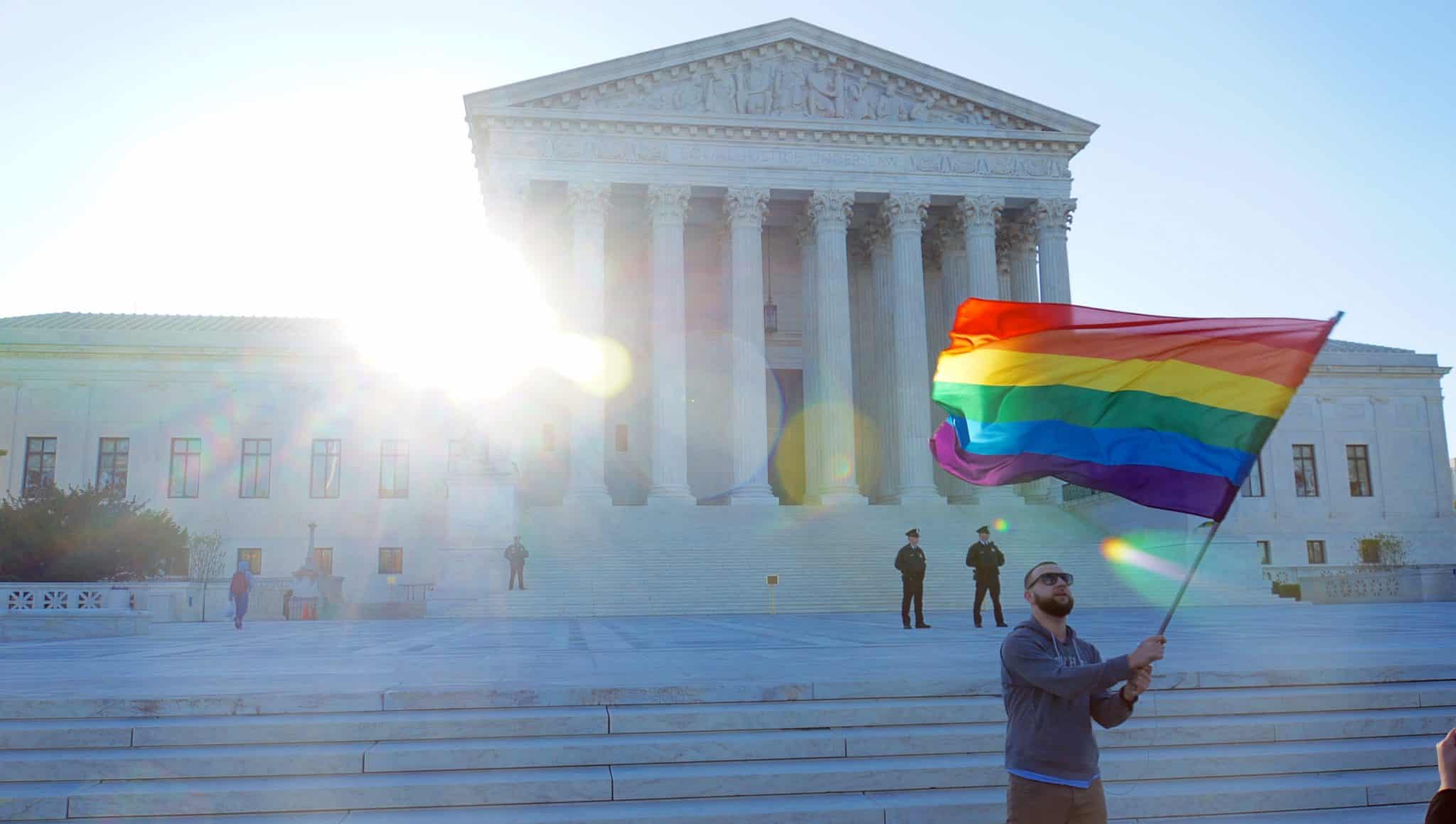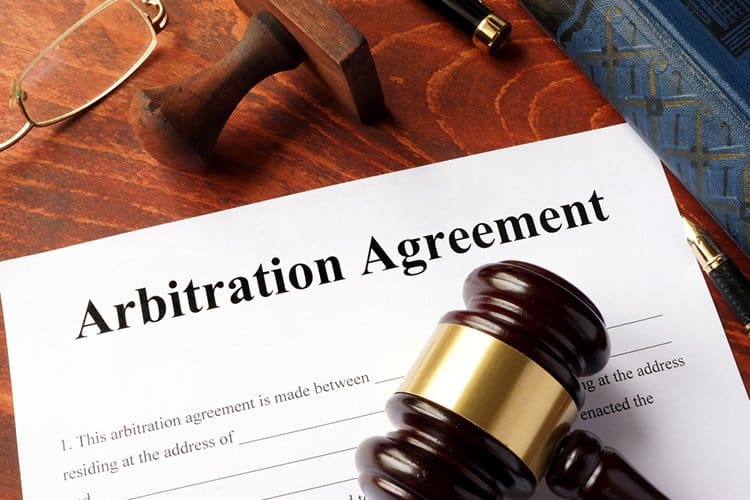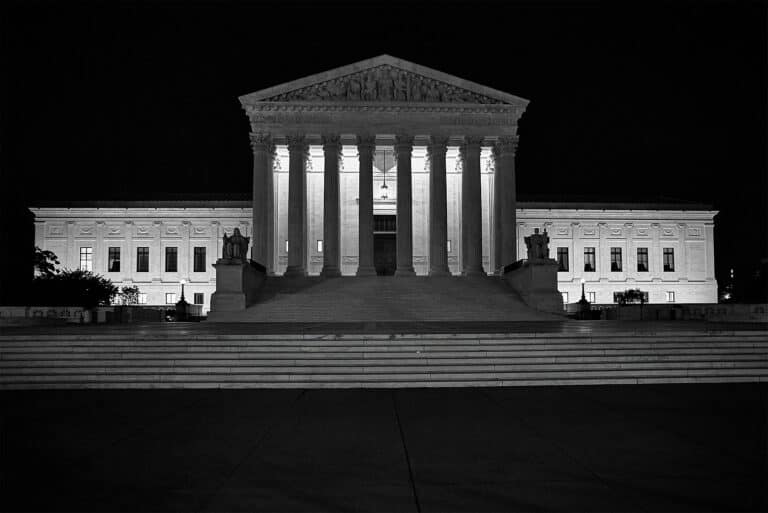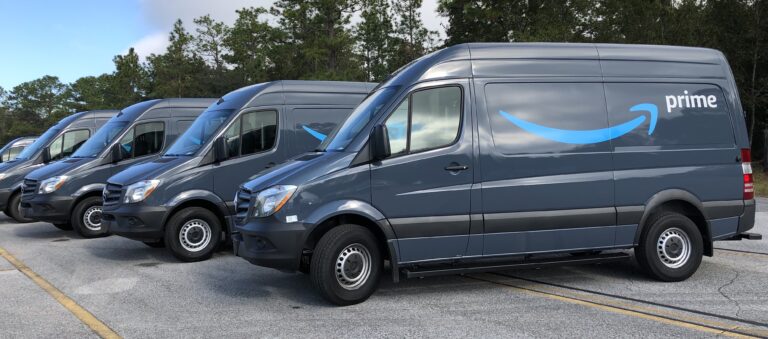Yesterday the Supreme Court ruled in New Prime v. Oliveira that transportation workers, both employees and independent contractors, can sidestep forced arbitration and sue their bosses in court. The decision has big implications for America’s truckers and drivers, among the most common professions in the country. But it’s also a surprising win for LGBTQ workers.
Whether or not they know it, tens of millions of American workers have signed agreements with their employers to bring workplace claims exclusively through private arbitration. There’s a reason why employers like arbitration: it stacks the deck in their favor. Employees must bring their claims before private arbitrators, who are usually chosen by employers and incentivized to rule in employers’ favor if they want to be picked again. And arbitration lacks several of litigation’s crucial components, such as a jury and often discovery.
In a series of decisions, the Supreme Court has relied on the Federal Arbitration Act to hold these unfair agreements enforceable. But Section 1 of the Act has an essential carveout for “contracts of employment of seamen, railroad employees, or any other class of workers.” In 2001, the Court read this provision to exempt the contracts of “transportation workers” from the Act’s broad mandate of enforceability. Hoping to get around this exception, many employers in the transportation industry simply misclassified their workers as independent contractors, who they argued could not have “contracts of employment.” Yesterday, however, the Court ruled that the Act exempts all transportation workers, however they are classified.
What does this have to do with LGBTQ workers? Queer people make up a growing part of the transportation industry, and trucking in particular. In her new book Semi Queer: Inside the World of Gay, Trans, and Black Truck Drivers, Anne Balay details why LGBTQ people have turned to work on the road. Because of discrimination, queer truck drivers often cannot find sustainable work elsewhere. And they’re less likely to face harassment in a job that is much more solitary than a traditional workplace. Along the way, many queer workers have found that they actually enjoy the work.
Still, LGBTQ people in the trucking industry are also among the most exploited by it. Because they’re limited in their job options, queer truckers are often willing to accept the poorest working conditions. As tightening regulations on drivers have reduced pay and pushed straight and cisgender workers with better options out of the industry, LGBTQ people, along with other marginalized workers, have filled the gap. When misclassified as independent contractors, drivers have also been denied basic protections such as minimum wage, overtime compensation, family and medical leave, unemployment insurance, and, of course, protections against discrimination and harassment. And because most drivers have signed arbitration agreements, they have been blocked from challenging their conditions in a fair forum.
Yesterday’s decision ensures that LGBTQ truck drivers, no matter how they’re classified, can have their day in court. Unfortunately, queer people who work in other industries are not so lucky. As activists work to secure LGTBQ employment protections, their advocacy cannot be focused on rights alone. We must urge lawmakers to amend the Federal Arbitration Act to exempt workers in all industries from a process built to fail them.









Daily News & Commentary
Start your day with our roundup of the latest labor developments. See all
February 27
The Ninth Circuit allows Trump to dismantle certain government unions based on national security concerns; and the DOL set to focus enforcement on firms with “outsized market power.”
February 26
Workplace AI regulations proposed in Michigan; en banc D.C. Circuit hears oral argument in CFPB case; white police officers sue Philadelphia over DEI policy.
February 25
OSHA workplace inspections significantly drop in 2025; the Court denies a petition for certiorari to review a Minnesota law banning mandatory anti-union meetings at work; and the Court declines two petitions to determine whether Air Force service members should receive backpay as a result of religious challenges to the now-revoked COVID-19 vaccine mandate.
February 24
In today’s news and commentary, the NLRB uses the Obama-era Browning-Ferris standard, a fired National Park ranger sues the Department of Interior and the National Park Service, the NLRB closes out Amazon’s labor dispute on Staten Island, and OIRA signals changes to the Biden-era independent contractor rule. The NLRB ruled that Browning-Ferris Industries jointly employed […]
February 23
In today’s news and commentary, the Trump administration proposes a rule limiting employment authorization for asylum seekers and Matt Bruenig introduces a new LLM tool analyzing employer rules under Stericycle. Law360 reports that the Trump administration proposed a rule on Friday that would change the employment authorization process for asylum seekers. Under the proposed rule, […]
February 22
A petition for certiorari in Bivens v. Zep, New York nurses end their historic six-week-strike, and Professor Block argues for just cause protections in New York City.